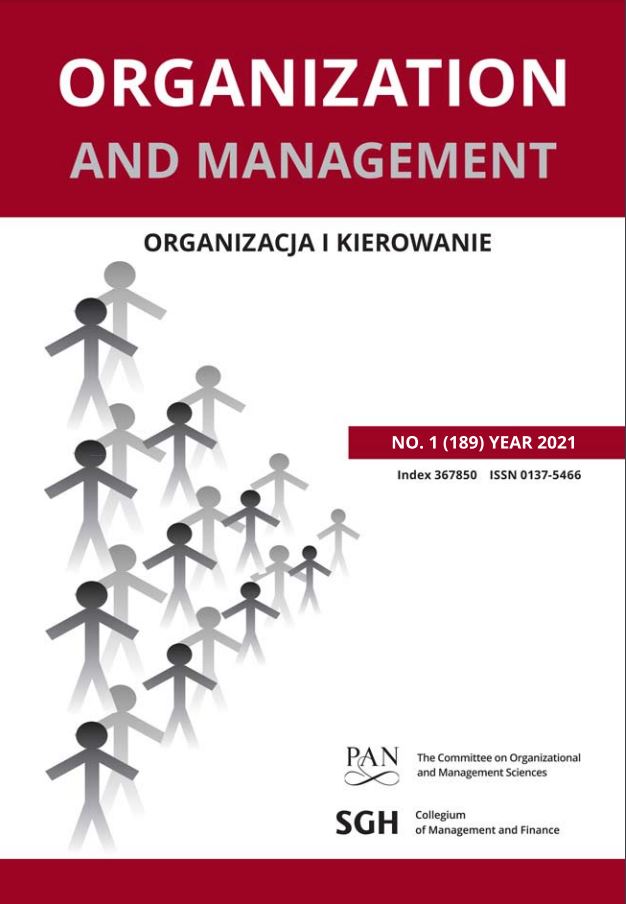Preface
Main Article Content
Abstract
The COVID-19 pandemic (and its ongoing “fourth wave”) is changing the world in an unprecedented way. It could be argued that pandemics are rare and do not deserve particular attention, however, it would be false for at least two reasons. Firstly, researchers indicate that pandemics are not uncommon, and research into them is important because it is pandemics that cause fundamental changes in organisations and communities, and their effects are observed decades later. Secondly, pandemics reveal assumptions behind theoretical mechanisms that one rarely questions, enabling the formation of a new theory and the integration of new evidence. We should therefore study this pandemic in terms of its theoretical significance and substantive impact on the management of organisations. However, the difficulty of research under these conditions is related to the paradigm shift and long-term impact of pandemic. From a research perspective, these are rare but significant changes that radically alter our understanding of phenomena by transforming fundamental assumptions on which our understanding is based. Facing the existential threat posed by the COVID-19 pandemic, organisations have been almost commonly forced into programmes for rapid and radical transformation. In many cases, this has resulted in a serious rethink of how work is done. For example, in the short term, organisations generally engage in empathetic responses to employees, and many
have radically changed the way and place of work for employees. At first glance,
both actions appear to be reasonable. Moreover, in almost all cases, organisations
which will survive will face further major changes.
